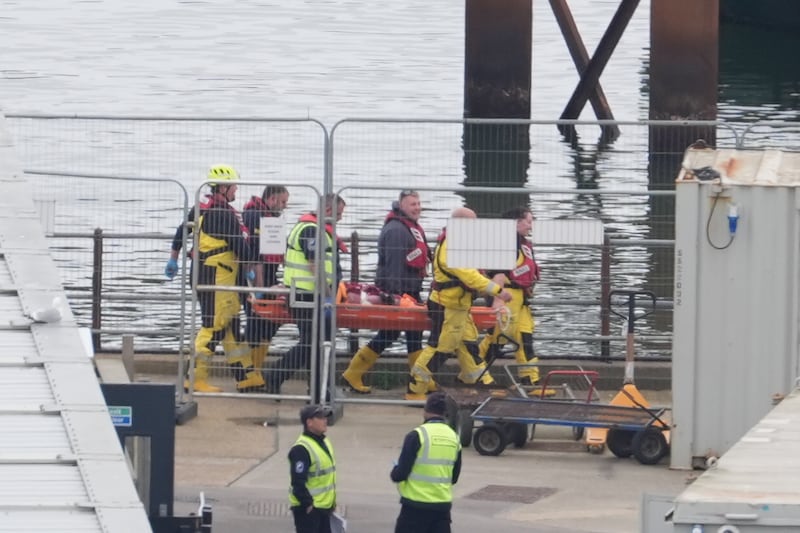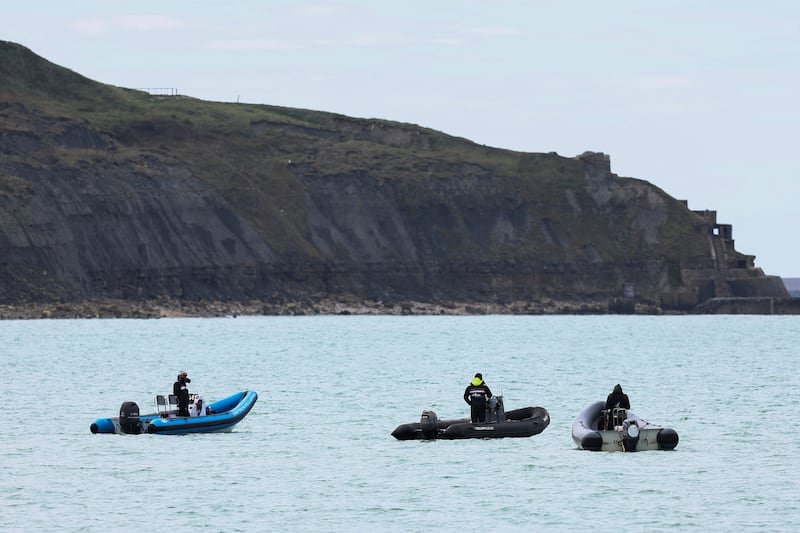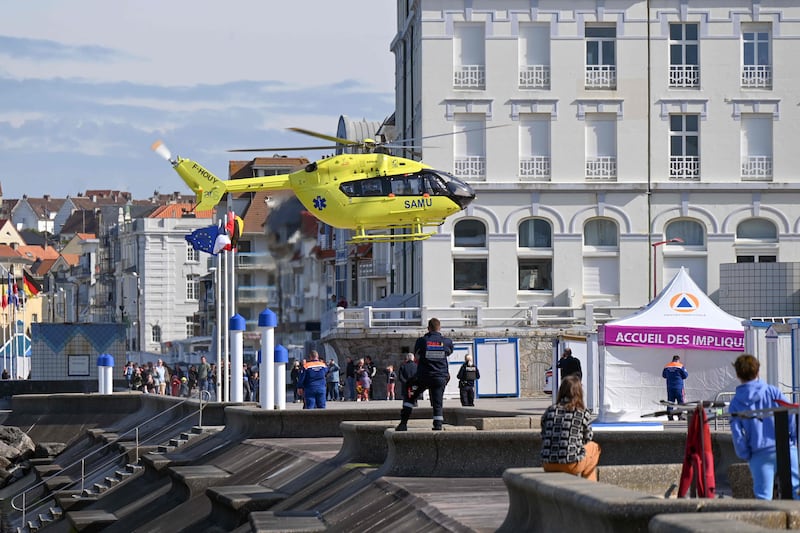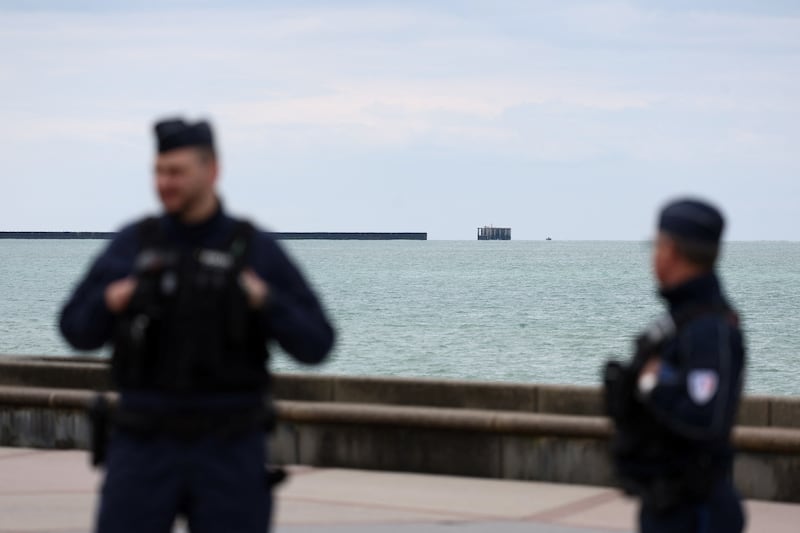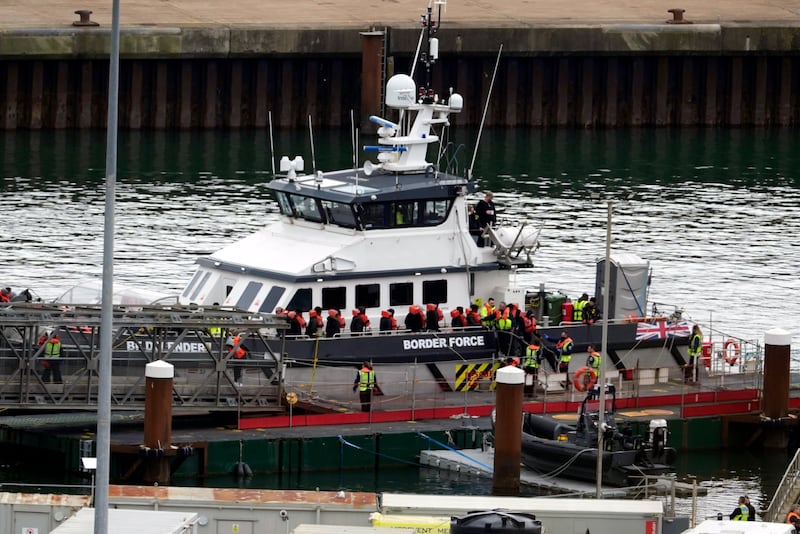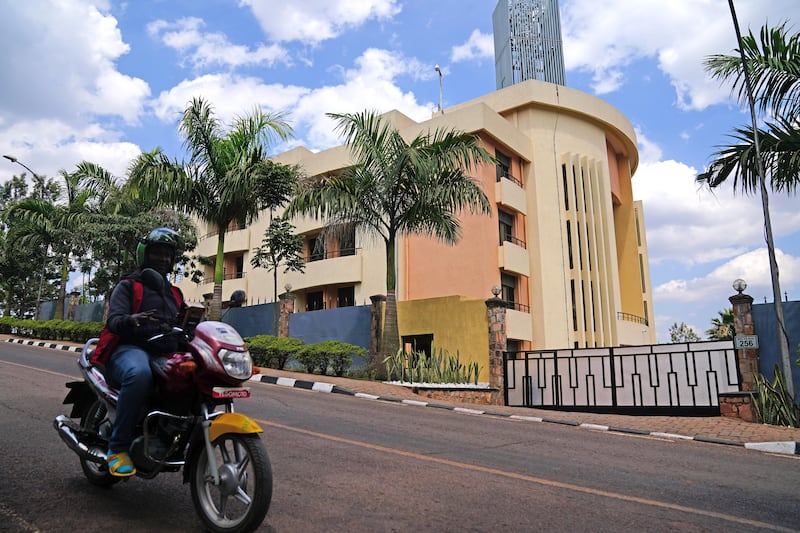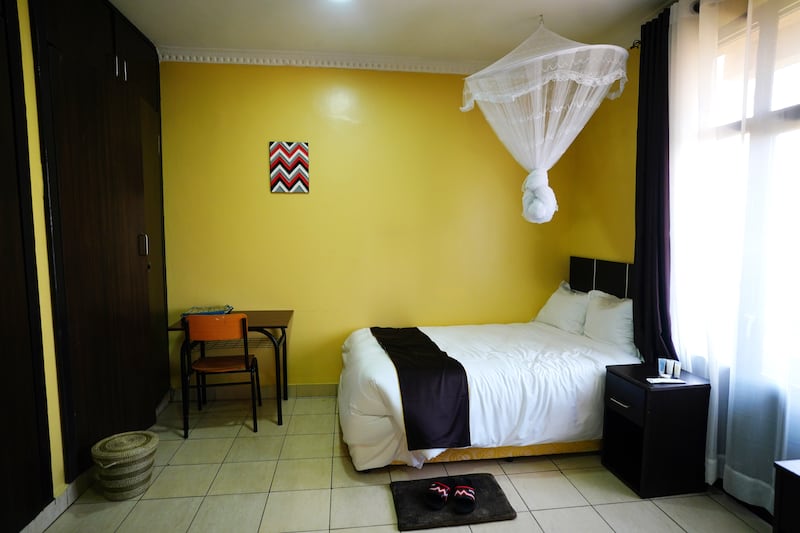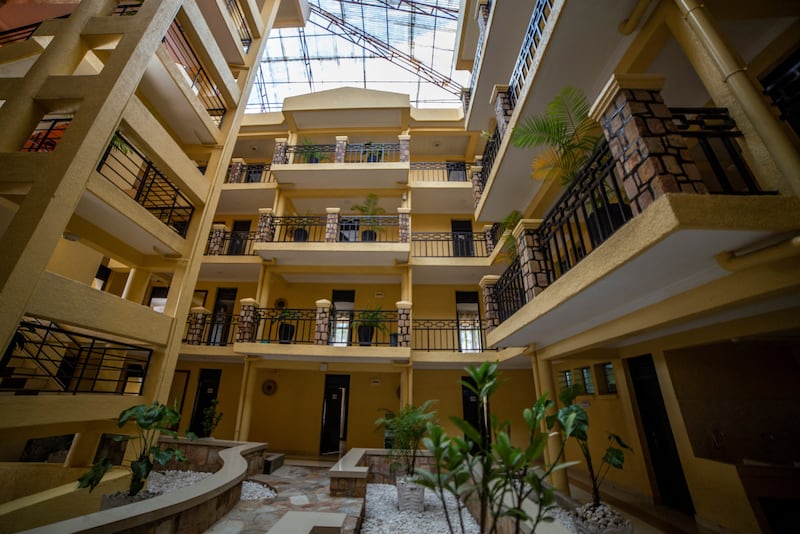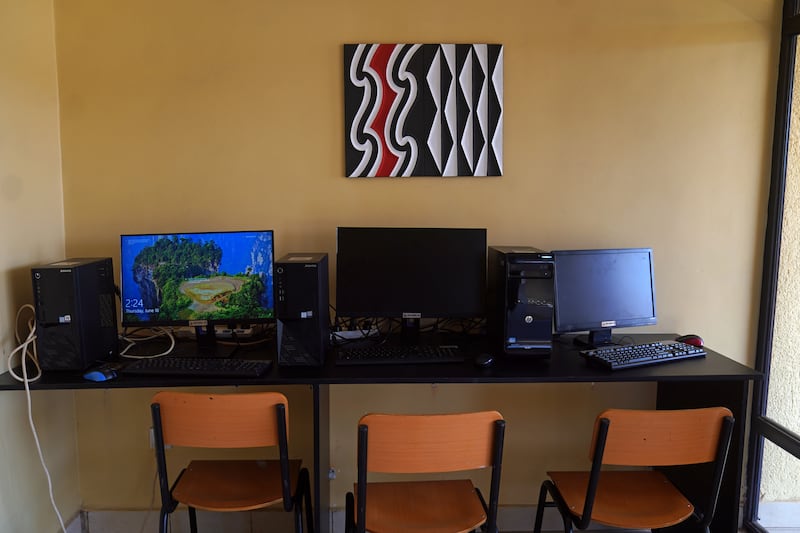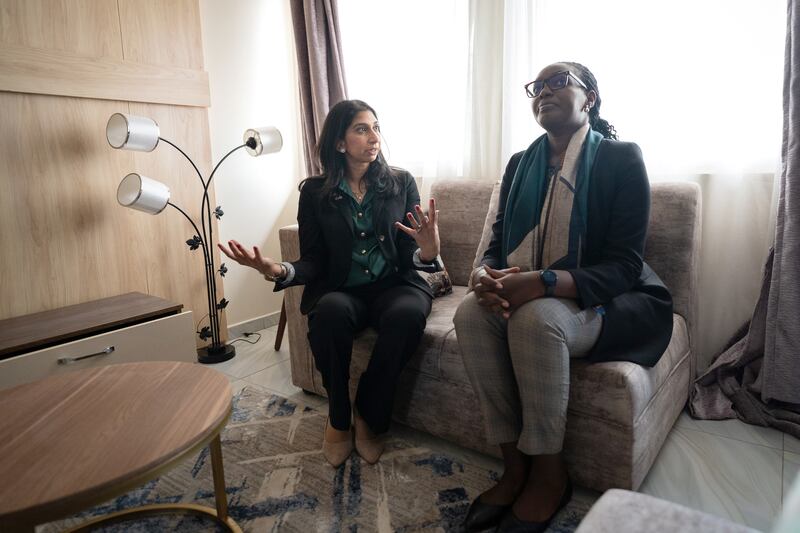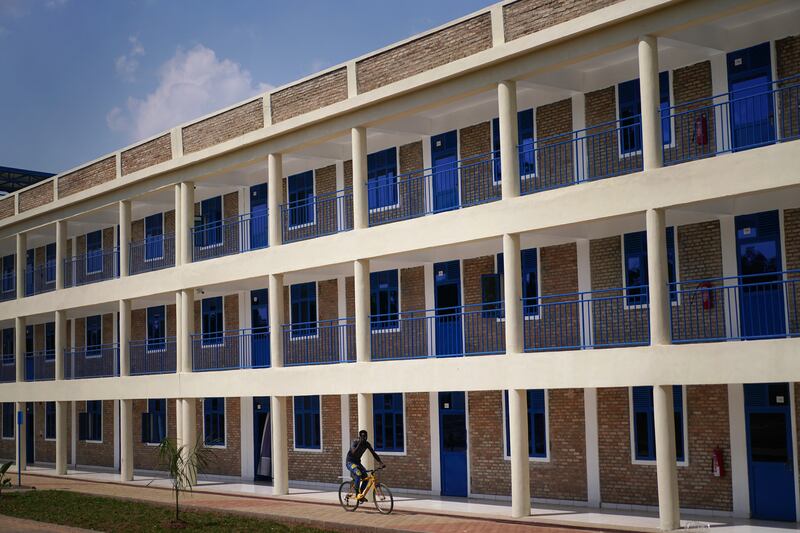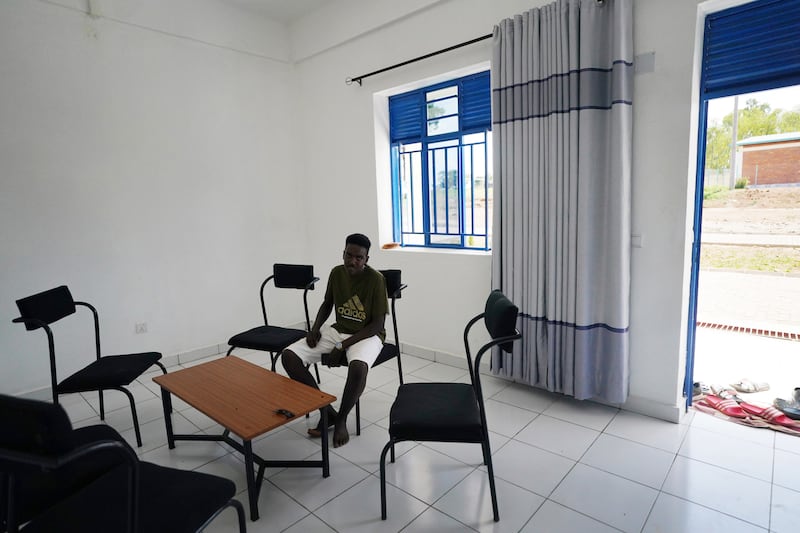The UK government began putting into motion the key plank of its "stop the boats" plan on Tuesday, with several migrants dying in the English Channel only hours after the Rwanda bill finally passed through parliament.
Under the law, which will shortly receive Royal Ascent, Britain can send migrants who arrive in the country illegally to Rwanda. More than 100,000 have made the deadly crossing since 2020, with more than 6,000 so far this year reaching England.
Prime Minister Rishi Sunak said criminal gangs are “exploiting vulnerable people” and “packing more and more people into these unseaworthy dinghies” to make the “dangerous crossings”.
Speaking on a flight to Poland on Tuesday, he said: “There are reports of sadly yet more tragic deaths in the Channel this morning. I think that is just a reminder of why our plan is so important … it underscores why you need a deterrent very simply.”
At least five migrants, including a seven-year-old girl, died in a failed attempt to cross the channel early on Tuesday.
The French coastguard said police were operating at a beach following the incident on Tuesday morning, adding there were several “lifeless bodies”.
A total of 47 people were rescued, four of whom were taken to hospital. They are not at an “acute risk of dying”, said local official Jacques Billant.
Those who died included three men, a woman and a seven-year-old girl. Their bodies were discovered at Wimereaux beach, according to Voix du Nord newspaper.
“Around 5am this morning, a small boat set sail,” said a representative for the coastguard.
“After an initial stranding on a sandbank, the boat set out to sea again. A crowd movement apparently occurred in the overloaded boat.”
There were around 112 people on board the boat at the time. More than 50 opted to remain on-board and attempt the journey to Britain.
The coastguard representative said agents were still operating at sea early on Tuesday after what the official called a busy morning, with several crossing attempts.
Home Secretary James Cleverly said the UK government was doing all it can to stop dangerous small boat crossings.
Speaking after the incident, Mr Cleverly said: “These tragedies have to stop. I will not accept a status quo which costs so many lives.
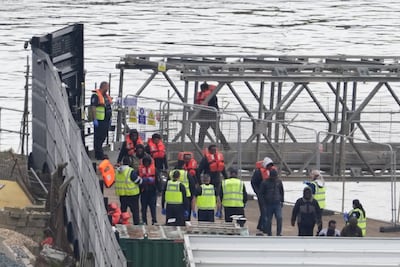
“This government is doing everything we can to end this trade, stop the boats and ultimately break the business model of the evil people smuggling gangs, so they no longer put lives at risk.”
Minister of State for Countering Illegal Migration, Michael Tomlinson, said reports of further deaths in the English Channel were “absolutely chilling" and meant fatalities had occurred in the Channel for nine consecutive months.
The incident came hours after Mr Sunakvowed that “nothing will stand in our way” of getting flights to Rwanda off the ground, as the government braced itself for legal challenges to the scheme to send asylum seekers to the East African country.
The Safety of Rwanda (Asylum and Immigration Bill) cleared Parliament shortly after midnight as peers backed down, ending resistance to the scheme.
Charities have said the plan will only “compound chaos” in the immigration system.
“The government’s decision to stop processing the majority of asylum claims since last July has already left nearly 52,000 individuals stranded in the UK indefinitely, shut out from the asylum system, unable to work, unable to be returned to their own country, and in need of indefinite support,” Enver Solomon, chief executive of the Refugee Council, told The National.

The Prime Minister has said the Rwanda scheme will deter migrants from seeking to cross the English Channel.
About 6,265 people have made the journey on small boats so far this year, an increase of about 24 per cent on the same period in 2023.
Migrants from Vietnam have accounted for about one in five of the arrivals at 1,266, an increase from just 125 a year earlier, while refugees from Afghanistan made up another fifth at 1,216, up from 1,098. There have been 3,783 arrivals from the rest of the world, about the same as last year.
Young children and babies were among those seen arriving in Dover on Tuesday.
Preparations for the first flights will begin within days, with asylum seekers who could be relocated being identified and possibly detained.
Charter planes are expected to leave for Rwanda in 10-12 weeks, with Mr Sunak promising “multiple flights a month”, although ministers conceded numbers being sent to Kigali would be small at first.
He said an airfield was on standby, slots were booked for flights, 500 staff were ready to escort migrants and courts had been reserved to process appeals.
Charities and rights groups say they will try to stop deportations and the trade union that represents border force staff is promising to argue the legislation is unlawful “within days” of the first asylum seekers being informed they will be sent to Rwanda.
Mr Tomlinson said the government was prepared for “inevitable” legal challenges to the Rwanda scheme.
He told Times Radio: “It's inevitable. I'm afraid that there will be challenges. There are people who don't like this policy; the Labour lords, as we saw last night and the Labour Party. There are people who are determined to do whatever it takes to try to stop this policy from working.”
He accused some opponents of making “patronising and supercilious” arguments about the safety of Rwanda.
“Frankly, some of the debate that we've heard in the House of Commons and the House of Lords – not recently, but in the early days – was very patronising and almost supercilious in looking down at Rwanda.
“Rwanda is a very progressive country. And we've seen that in all sorts of international measures as well.”
Rwanda's migration centres – in pictures
Shadow foreign secretary Yvette Cooper said the Rwandan scheme is an “extortionately expensive gimmick” and that if Labour wins the next election, they will introduce an alternative plan.
Speaking to BBC Breakfast, Ms Cooper said: “This is not a serious plan to actually tackle the problem. It's costing around half a billion pounds for just 300 people to be sent to Rwanda, that's less than 1 per cent of asylum seekers. It's not addressing the 99 per cent, it's not addressing the overall problem.
“That's why Labour would replace the Rwanda scheme with a new plan to boost our border security, to go after the criminal gangs and their networks right across Europe.
“We would also have stronger powers, stronger intelligence agreements, and new fast-track systems in the UK, so that we have a new returns and enforcement unit.”
Mr Sunak has insisted he will not let the European Court of Human Rights block flights to Rwanda.
The court is an institution of the Council of Europe, which urged Mr Sunak to abandon the Rwanda plan.
Speaking after the legislation was passed, Michael O'Flaherty, Council of Europe Commissioner for Human Rights, said the Rwanda scheme raises “major issues about the human rights of asylum seekers and the rule of law more generally”.
“The United Kingdom government should refrain from removing people under the Rwanda policy and reverse the Bill's effective infringement of judicial independence,” he said.
More than 250 organisations from across civil society in Britain have signed a letter sent to the Prime Minister after the act passed, saying the plan breaks international law and “abandons our duty to share in the global responsibility towards those forced to seek safety”.
The letter also describes the legislation as “a shameful and performatively cruel law that will risk people's lives”. Signatures include the Refugee Council, JCWI, Jesuit Refugee Service UK, Detention Action, Refugee Action, Freedom from Torture and Care4Calais.
In a statement issued to The National on behalf of the 251 organisations, Yasmin Halima, Executive Director for the Joint Council for the Welfare of Immigrants (JCWI), said: “This Act of performative cruelty does nothing to improve anyone’s lives.
“It simply punishes people in most need, by allowing the government to forcibly expel people who’ve fled danger, including children and survivors of trafficking, to a place they’ve never been, where they could face further abuse.
“Most of us recognise this desperate act of political theatre for what it is, and urge the government to stop relentlessly attacking refugees, and focus on creating a fairer and more caring society.”
Tens of thousands of migrants – many fleeing wars and poverty in Africa, the Middle East and Asia – have reached Britain in recent years by crossing the English Channel in small boats on risky journeys organised by people-smuggling gangs.
The Channel between France and Britain is one of the world's busiest shipping lanes and currents are strong, making the crossing on small boats dangerous.
People smugglers typically overload dinghies, leaving them barely afloat and at risk of being lashed by the waves as they try to reach British shores.
